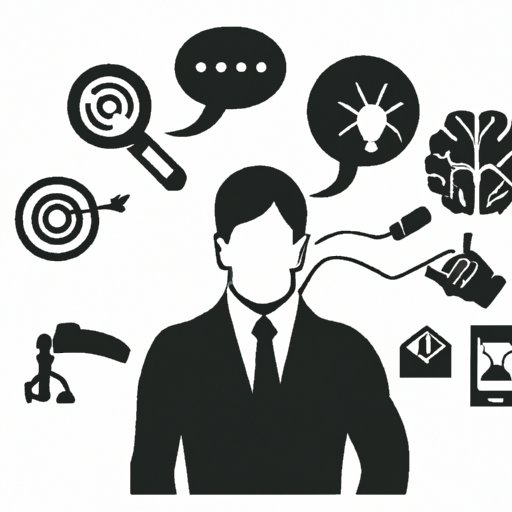
I. Introduction
Critical analysis is a crucial tool for effective problem-solving across various fields. In this article, we will explore the concept of critical analysis, its importance in everyday life, and how to master the process for more effective problem-solving.
II. Breaking Down Critical Analysis: A Guide to Understanding the Process
Critical analysis is a process of evaluating information, theories or situations to form a judgment. It involves breaking down a complex problem into smaller, more manageable parts, examining each part closely, and putting it back together to form a coherent whole. The steps involved in critical analysis include identifying the problem, performing research, analyzing information, and making a decision. Critical analysis is important in problem-solving as it provides a structured approach to solving complex problems.
III. Looking Beyond the Surface: The Importance of Critical Analysis in Research
Critical analysis plays a vital role in research. It helps to identify gaps in existing knowledge, evaluate the validity of research findings, and generate new insights. Critical analysis also helps researchers to identify biases, assumptions, and limitations of the research methods used, and develop better research questions.
IV. Mastering Critical Analysis: Tips and Tricks for Effective Analysis
To master critical analysis, it is essential to develop effective strategies. These may include practicing active reading, organizing and structuring information, and practicing critical thinking exercises. Effective critical analysis requires attention to detail and the ability to identify patterns and connections between seemingly unrelated information.
V. The Role of Critical Analysis in Decision Making
Critical analysis can be applied to various decision-making scenarios, from personal to professional. It helps to weigh the potential risks and benefits of different options, identify assumptions and biases, and make informed decisions. Critical analysis can help to avoid common decision-making mistakes, such as overconfidence and confirmation bias.
VI. Exploring Critical Analysis: Understanding Its Relevance in Daily Life
Critical analysis is relevant to everyday life as it helps to solve problems and make decisions in various contexts. It can be applied in personal and professional situations, from evaluating the credibility of news sources to improving communication and problem-solving in the workplace. Understanding the relevance of critical analysis in everyday life can help individuals to make better decisions and solve problems more effectively.
VII. Step-by-Step Guide to Critical Analysis for Beginners
For those new to critical analysis, a step-by-step guide can be helpful. This may include identifying the problem, gathering relevant information, analyzing and evaluating information, and making a decision based on the evidence. By following a structured approach, beginners can learn to develop critical thinking skills and apply them to different scenarios.
VIII. Critical Analysis as a Tool for Problem-Solving and Innovation
Critical analysis plays a vital role in problem-solving and innovation. It helps to identify areas for improvement and generate new insights. Critical analysis has led to new discoveries in various fields, from science to technology, healthcare, and beyond. Cultivating a mindset that values critical analysis can lead to more creative problem-solving and innovative thinking.
IX. Conclusion
Critical analysis is a valuable tool for effective problem-solving and decision-making. By mastering critical analysis techniques, individuals can improve their problem-solving skills and become more effective in various contexts. It is essential to cultivate a mindset that values critical analysis and to continue learning and practicing these skills to achieve success in personal and professional endeavors.
We encourage readers to apply the tips and techniques discussed in this article to their own problem-solving challenges and to continue exploring the benefits of critical analysis in various contexts.




